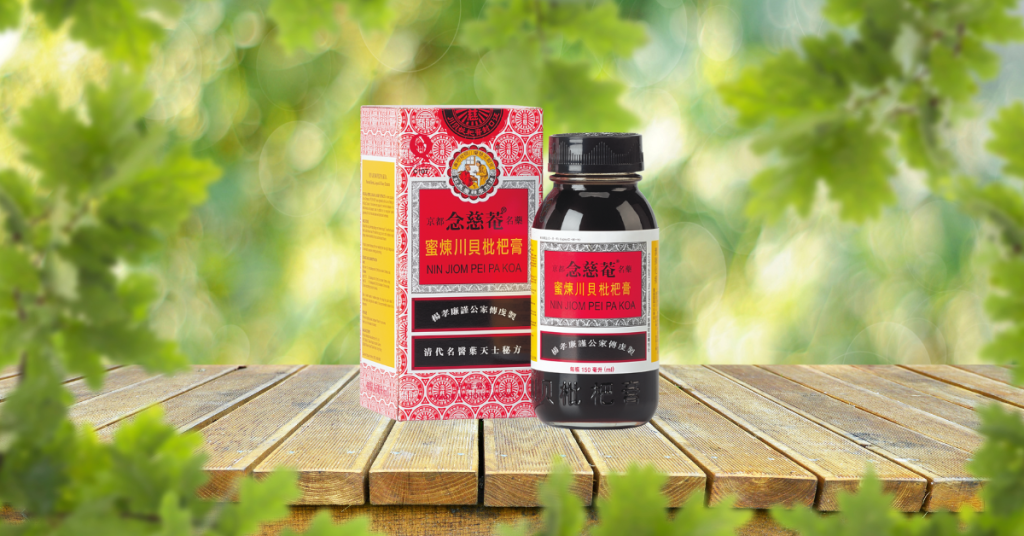Few household remedies have a story as enduring—or as market savvy—as Nin Jiom Pei Pa Koa. Known simply as Pei Pa Koa, this thick, honey-sweet herbal syrup has been treating sore throats and coughs for centuries. But its real story is bigger: a tale of filial piety, cultural branding, and global reinvention that transformed a traditional Chinese medicine into a multimillion-dollar global business.
A Remedy Born from a Son’s Devotion
The origins date back more than 400 years during China’s Qing Dynasty. A provincial commander named Yang Xiaolian was desperate to save his ailing mother, who suffered from a severe cough. He sought the help of Dr. Yip Tin-See, a physician to the royal family, who created a special formula of herbs and honey. The remedy worked, and Yang’s mother made a full recovery.
In gratitude, Yang named the syrup “Nin Jiom,” meaning “In memory of my mother.” The name itself became the brand’s first marketing masterstroke. Rooted in the Confucian virtue of filial piety, it wasn’t just medicine—it was a symbol of love and care. The logo of a son kneeling before his mother still captures that founding story.
From Family Workshop to Hong Kong Business
The Yang family began producing the syrup in Beijing under the name Kingto Nin Jiom. But war and political upheaval forced them south. In 1946, as the family prepared to emigrate, they entrusted the formula to Tse Siu-bong, a respected herbalist in Hong Kong.
This move saved the brand. Tse started making the syrup in his shop, later formalizing operations as Nin Jiom Medicine Manufactory in 1962. What began as a family cure now had the corporate foundation to scale.
Why It Worked: The Formula and the Story
Pei Pa Koa is built on a blend of loquat leaf, fritillaria bulb, platycodon root, honey, and licorice—herbs long used in traditional Chinese medicine for soothing throats and easing coughs. Modern studies have confirmed anti-inflammatory and expectorant effects, bridging Eastern tradition with Western science.
But just as powerful as the formula is the story. A product rooted in filial love feels inherently trustworthy, especially in Chinese culture. That emotional resonance became a competitive edge—one that Western brands rooted only in science often can’t replicate.
From Herbal Remedy to Global Brand
By the 1990s, Nin Jiom had expanded well beyond Hong Kong. New factories in Taiwan and Singapore fueled growth, and distribution networks carried bottles to more than 20 countries. Annual sales reached hundreds of millions of Hong Kong dollars.
One smart strategy was controlling supply. Nin Jiom cultivates fritillaria bulbs on the pollution-free Qinghai-Tibetan plateau, ensuring purity and sustainability. That kind of vertical integration reassures modern consumers who want transparency about what’s in their products.
The other breakthrough came through culture. The brand leaned into witty ad campaigns that positioned Pei Pa Koa as both traditional and trendy. Younger consumers were introduced to the product not just as cough syrup but as candy, tea additive, and even a lifestyle staple.
The Celebrity Effect
Then came the endorsements. Pop star Zayn Malik told British Vogue he always carried Pei Pa Koa. Jason Mraz said he mixes it into his tea before performing. Broadway’s Wicked cast swore by it for soothing vocals. In 2018, a Wall Street Journal article about New Yorkers stocking up during flu season sent online prices soaring to $70 a bottle. Shares of distributor Kingworld Medicines surged 25% in a single week.
For a centuries-old brand, this was the ultimate viral moment. What had once been passed down through families was suddenly trending on Instagram and TikTok.
From Cough Syrup to Cocktail Ingredient
Today, Pei Pa Koa is finding new life in unexpected places. Bartenders stir it into Old Fashioneds. Chefs use it in desserts and ice creams. Lifestyle blogs recommend it as a bread spread. This crossover from medicine to culinary culture keeps the brand relevant—and profitable.
The Road Ahead
Challenges remain. Regulatory hurdles in mainland China are tough, and Western doctors still caution about herbal-drug interactions. But Nin Jiom has proven resilient. By investing in research, diversifying into products like herbal candies, and leaning on its cultural story, the brand continues to grow.
At its core, Pei Pa Koa’s success rests on something rare: authenticity. What started as a son’s devotion to his mother has become a global wellness phenomenon. For entrepreneurs, it’s a reminder that the best brands are built not just on products—but on stories that endure.
![]()



